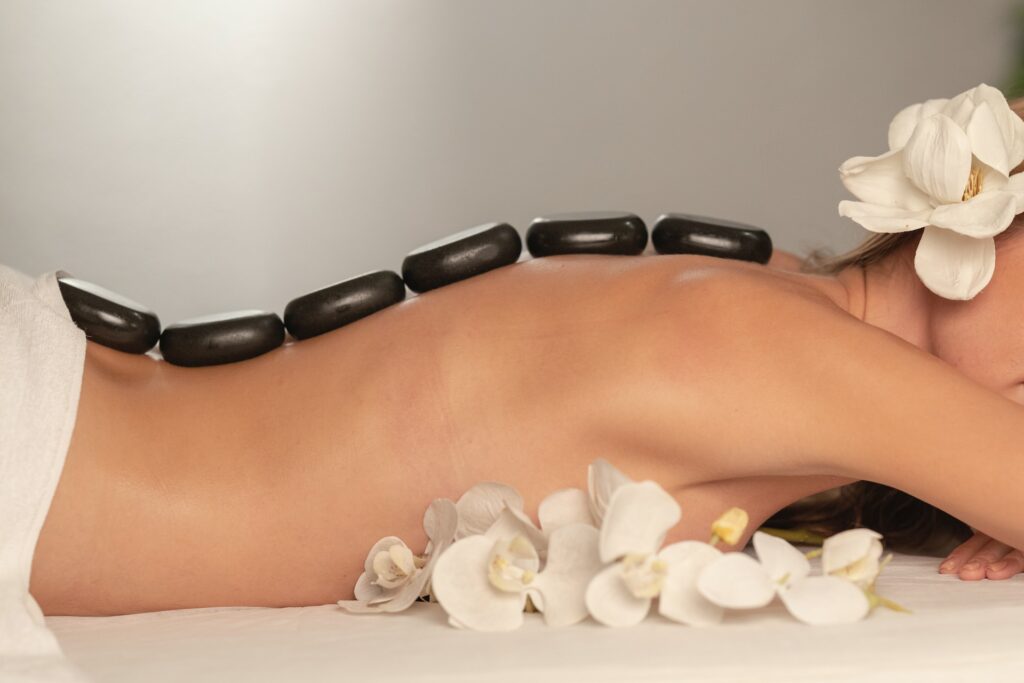Exploring Advanced Strategies for Stress Management
In today’s fast-paced world, stress has become an inevitable part of our lives. However, staying perpetually stressed is neither healthy nor productive. To combat this, science has paved the way for innovative stress management techniques that empower individuals to achieve serenity amidst life’s chaos. Let’s delve into the cutting-edge strategies that can help you achieve a state of tranquility.
Mindfulness Meditation: Embracing the Present Moment
Mindfulness meditation has emerged as a cornerstone of stress management. By focusing your attention on the present moment without judgment, you can gain a clearer perspective on your thoughts and feelings. Through consistent practice, mindfulness helps reduce rumination and promotes emotional regulation. Research shows that incorporating mindfulness into your daily routine can significantly lower stress levels and enhance overall well-being.
Cognitive Restructuring: Rewiring Negative Thought Patterns
Our thoughts hold immense power over our emotions. Cognitive restructuring is a technique designed to identify and challenge negative thought patterns. By reframing your perspective and replacing irrational thoughts with rational ones, you can diminish the impact of stressors. This process enhances your problem-solving skills and equips you with a resilient mindset, enabling you to navigate stressful situations with composure.
Biofeedback Therapy: Harnessing the Mind-Body Connection
Advancements in technology have paved the way for biofeedback therapy, a groundbreaking approach to stress management techniques. This technique involves monitoring physiological responses such as heart rate, muscle tension, and skin conductance. By learning to control these bodily functions, you can effectively regulate your body’s stress response. Biofeedback empowers you to take proactive measures to maintain equilibrium, leading to reduced stress and improved overall health.
Progressive Muscle Relaxation: Unwinding the Tensions
Modern stressors often manifest as physical tension in the body. Progressive muscle relaxation offers a systematic approach to relieving such tension. By sequentially tensing and then relaxing different muscle groups, you can promote physical and mental relaxation. This technique not only reduces muscle stiffness but also enhances body awareness, fostering a sense of calmness and serenity.

Expressive Writing: Channeling Emotions for Inner Peace
Sometimes, the most effective way to manage stress is through self-expression. Expressive writing encourages you to channel your thoughts and emotions onto paper. This practice provides a cathartic release, allowing you to gain insights into your feelings and concerns. By acknowledging and addressing your emotions, you can prevent them from festering and intensifying, leading to a lighter mental and emotional load.
Cultivating Social Connections: Nurturing a Supportive Network
Humans are inherently social beings, and cultivating social connections plays a pivotal role in stress management. Engaging in meaningful interactions with friends, family, or support groups provides a sense of belonging and emotional support. Sharing your experiences and receiving empathy not only alleviates stress but also fosters a sense of camaraderie and well-being.
Embrace Serenity, Banish Stress
Serenity is not a distant dream; it’s a reality waiting to be embraced. The science of stress management opens a gateway to a calmer, more harmonious existence. With mindfulness as your compass and cognitive restructuring as your guide, you can navigate the tumultuous waters of life with grace and poise. Biofeedback therapy and progressive muscle relaxation offer tools to recalibrate your mind and body, paving the way for tranquility.
In the realm of stress management, expressive writing becomes your confidant, allowing you to untangle the knots of worry and uncertainty. As you pen down your thoughts, a cathartic release washes over you, leaving space for clarity and peace. Cultivating social connections adds another layer of support, reminding you that you’re not alone on this journey.
So, embark on this path to lasting serenity. Embrace these cutting-edge techniques and let them be your allies in banishing stress. As you weave them into the fabric of your daily life, you’ll find that serenity becomes your steadfast companion, guiding you through challenges and illuminating the way to a brighter, more tranquil future.
Conclusion: A Path to Lasting Serenity
In the pursuit of serenity, science has gifted us with an array of cutting-edge stress management techniques. From mindfulness meditation to biofeedback therapy, these strategies empower individuals to take charge of their well-being. By incorporating these practices into your daily routine, you can pave the way for a more serene and fulfilling life. Remember, the journey to serenity begins with a single step – the step towards embracing these innovative stress management techniques.
FAQ’s
Q1: What are cutting-edge stress management techniques?
A1: Cutting-edge stress management techniques refer to the latest and most advanced strategies that have been developed to help individuals effectively manage and reduce stress in their lives. These techniques are grounded in scientific research and aim to provide innovative ways to achieve serenity and well-being.
Q2: How does mindfulness meditation help with stress?
A2: Mindfulness meditation involves focusing one’s attention on the present moment without judgment. This practice promotes self-awareness and helps individuals gain perspective on their thoughts and emotions. By consistently practicing mindfulness, individuals can reduce rumination, improve emotional regulation, and ultimately lower stress levels.
Q3: What is cognitive restructuring, and how does it work?
A3: Cognitive restructuring is a technique that involves identifying and challenging negative thought patterns. By reframing irrational thoughts and replacing them with rational ones, individuals can change their perspectives and reduce the impact of stressors. This technique enhances problem-solving skills and cultivates a more resilient mindset.
Q4: How does biofeedback therapy contribute to stress management?
A4: Biofeedback therapy utilizes technology to monitor and control physiological responses such as heart rate, muscle tension, and skin conductance. By learning to regulate these bodily functions, individuals can effectively manage their body’s stress response. Biofeedback empowers individuals to take proactive measures to maintain equilibrium, leading to reduced stress and improved overall health.
Q5: What is progressive muscle relaxation, and how does it help unwind tension?
A5: Progressive muscle relaxation is a methodical approach to relieving physical tension in the body. By sequentially tensing and then relaxing different muscle groups, individuals can promote both physical and mental relaxation. This technique reduces muscle stiffness, increases body awareness, and fosters a sense of calmness and serenity.
Q6: How does expressive writing aid in stress management?
A6: Expressive writing involves channeling thoughts and emotions onto paper as a form of self-expression. This practice provides a cathartic release and helps individuals gain insights into their feelings and concerns. By acknowledging and addressing emotions, individuals prevent them from intensifying, leading to a lighter mental and emotional burden.
Q7: Why are social connections important for stress management?
A7: Cultivating social connections is essential for stress management because humans are social beings. Engaging in meaningful interactions with friends, family, or support groups provides emotional support and a sense of belonging. Sharing experiences and receiving empathy not only alleviates stress but also fosters a sense of camaraderie and overall well-being.
Q8: How can I incorporate these techniques into my daily routine?
A8: Incorporating these techniques into your daily routine requires dedication and consistency. Start by choosing one technique that resonates with you and gradually integrate it into your schedule. Set aside specific times for practice, such as mindfulness meditation before bed or expressive writing during breaks. Over time, these practices will become habits that contribute to your overall well-being.
Q9: Are these techniques suitable for everyone?
A9: While these techniques are generally beneficial for many individuals, it’s important to consider individual preferences and needs. Some techniques may be more suitable or effective for certain people, depending on their personality, lifestyle, and circumstances. It’s advisable to consult with a healthcare professional or therapist to determine which techniques align best with your specific situation.
Q10: Can these techniques replace medical treatment for stress-related conditions?
A10: While these techniques can be powerful tools for managing stress, they are not intended to replace medical treatment for serious stress-related conditions. If you have a medical condition or experience severe stress, it’s crucial to seek guidance from a qualified healthcare provider. These techniques can complement medical treatment and support overall well-being, but medical advice should always be prioritized when necessary.


